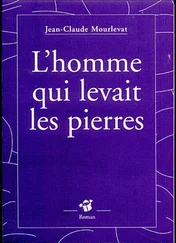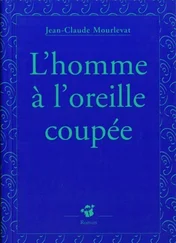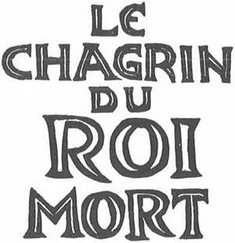Jean-Claude Mourlevat - Winter's End
Здесь есть возможность читать онлайн «Jean-Claude Mourlevat - Winter's End» весь текст электронной книги совершенно бесплатно (целиком полную версию без сокращений). В некоторых случаях можно слушать аудио, скачать через торрент в формате fb2 и присутствует краткое содержание. Год выпуска: 2010, ISBN: 2010, Издательство: Candlewick, Жанр: Старинная литература, на английском языке. Описание произведения, (предисловие) а так же отзывы посетителей доступны на портале библиотеки ЛибКат.
- Название:Winter's End
- Автор:
- Издательство:Candlewick
- Жанр:
- Год:2010
- ISBN:9780763651749
- Рейтинг книги:5 / 5. Голосов: 1
-
Избранное:Добавить в избранное
- Отзывы:
-
Ваша оценка:
- 100
- 1
- 2
- 3
- 4
- 5
Winter's End: краткое содержание, описание и аннотация
Предлагаем к чтению аннотацию, описание, краткое содержание или предисловие (зависит от того, что написал сам автор книги «Winter's End»). Если вы не нашли необходимую информацию о книге — напишите в комментариях, мы постараемся отыскать её.
Winter's End — читать онлайн бесплатно полную книгу (весь текст) целиком
Ниже представлен текст книги, разбитый по страницам. Система сохранения места последней прочитанной страницы, позволяет с удобством читать онлайн бесплатно книгу «Winter's End», без необходимости каждый раз заново искать на чём Вы остановились. Поставьте закладку, и сможете в любой момент перейти на страницу, на которой закончили чтение.
Интервал:
Закладка:
“Basil!” Milos called, looking for his friend among the crowd of gladiators. Basil wouldn’t know he’d survived his fight, and he had to reassure him. Then he remembered that Basil had been wounded and was bleeding from his side. It might be a serious injury. Where could he find the “infirmary” that Fulgur had mentioned? It must be somewhere close to the cells. He made his way against the human tide. He passed through the gateway and underneath the stands — which were shaking with the turmoil of the audience trying to get out — went back along the corridor, and soon reached the large cell where he and his companions had spent the night. It was empty. Nothing was left lying on the floor among the straw mattresses but the shirt and sandals that had belonged to Flavius, so recently dead in the arena, and his own. He had survived. He put them on and went out.
“Basil!” he called.
This time he turned right, opening all the doors he came to as he passed. Right at the end of the corridor a steep, worm-eaten wooden staircase led up through an open trapdoor to the story above. He dropped his sword and climbed the stairs.
“Are you there, Basil?”
He put his head up through the trapdoor to inspect the room. It was empty, lit very faintly by a tiny opening in the adobe wall. He went down the stairs again and as he turned, he saw Caius barring his way, sword in hand. His own sword had landed farther away, out of his reach.
“Well, cat, not spitting anymore now?”
Milos froze.
“Caius, don’t! Stop that. We’re free now.”
The other man wasn’t listening. He advanced, madness in his eyes, crouching with knees bent and arms apart, ready to spring. He was gripping his sword so hard that his knuckles were white.
“I’ll teach you to scratch, you bastard!” he hissed through his teeth. The scars on his hate-filled face seemed uglier than ever, forming a pattern of purplish lines.
“At least give me my sword!” asked Milos, careful not to make any sudden move. “I’m a gladiator like you! I have a right to defend myself. Give me my sword — do you hear, Caius?”
There was no reply.
“Caius,” Milos breathed. “Please! This is so stupid! We’re free now. Do you realize? We’re free. And I’m not a cat, you know — I’m not a cat.”
Caius didn’t hear him. No words could touch him in his delirium. And Milos saw that he was in deadly danger. He shouted at the top of his voice. “Help! Someone help me!”
There was no reply. The corridor was too narrow for him to escape that way without coming close to Caius, who as he saw was about to attack him any moment. Without thinking anymore, he leaped back to the stairs behind him and climbed them, using both his hands and his legs. Two steps collapsed under his weight. Once at the top, he found himself up against the wall. Caius had already joined him there.
And the dreadful confrontation began again, but in the half-light this time. Milos tried in vain to find words that would halt the madman in his tracks. He could see nothing of him now but a dark shape six feet away. They stood like that for a few seconds, breathing heavily.
And suddenly, from a furtive movement, from a change in the speed of his opponent’s breathing, Milos guessed that Caius was about to fling himself on him and strike him down. He got in first, lunging forward at the other man.
It all happened very fast.
The blade went into his stomach with a long, cold, burning pain. It was the only blow that either of them struck.
Dazed, Milos fell to his knees.
When he recovered consciousness, he was alone. In the distance, the thudding on the entrance doors to the arena was still echoing through the building. He was lying on his side, curled up. His head lay on the damp, cool ground. A little way off, a gray mouse was looking at him gently. He felt like stroking its soft fur. The pretty agate of its black eyes shone behind its twitching whiskers. It wasn’t afraid of him. The mouse can see I’m not a cat. He tried to move; his body wouldn’t obey him. He wanted to call out, but he was afraid that his own cries might tear him apart and kill him. He felt as frail as a flame in the wind. The least breath of air would blow him out.
His stomach was sticky with blood. My life is flowing out of it, he said to himself, pressing both hands to the wound. “Help,” he moaned. “I don’t want to die.” His tears fell to the ground and left a muddy little trail there. The mouse came closer with tiny steps, hesitated for a moment, and snuggled close to his cheek. You’re not entirely alone, it seemed to be saying. I’m not much, but I’m here.
Then the pictures began to come.
First he saw Bartolomeo on the bridge, hugging him in his long arms and then striding away. “We’ll see each other soon, Milos! We’ll meet again somewhere else. We’ll all meet again, the living and the dead.”
“Why did you let me down, Bart?” he asked.
The tall young man didn’t reply. He simply knelt beside Milos and smiled at him, friendship in his eyes.
Basil came too. His faithful, rough-hewn face was a good sight. He stammered several clumsy, reassuring words. “Don’t you worry, friend . . . I’m all right. Look!” And he showed Milos his own wound, healed.
Then other faces came. A wrestling coach from the past. “No strangling, boys, I repeat, no strangling.” Milos saw himself, very young, rolling over and over on a mat in the gym. Other faces, forgotten, came back from the past: small companions of his in the orphanage offering to swap marbles; friends from the boarding school slapping him on the back. “All right, Milos?” they cheerfully asked. “Good to see you again!” His consoler let them in, she told them to sit down, scolded those who made too much noise. She wanted to know if anyone was hungry, and went to make something to eat. Milos wondered how she would be able to do any cooking, how all these people could fit into this tiny room, and it made him laugh.
And then at last there was Helen. She seemed to be freezing under the hood of her school coat. Snow was falling, white and soft, on her shoulders. She knelt beside him too, and took his face between her icy hands. “Don’t go, Milos,” she said. “Don’t go away, my love.” He looked into the deep eyes of the young woman leaning over him, he saw her round cheeks, and he thought there was no one more beautiful in the world. “I won’t go away,” he wanted to say, but his lips were made of stone. So he told her, with his heart alone: I won’t go away, my love. I’ll stay with you. I promise.
And then all of them who had been leaning over him — Bartolomeo, Basil, the friends he had known through his life, Helen, who had brightened that brief life with such a dazzling light — they all gently moved aside and turned to the doorway, where a man and a woman stood, young and elegantly clothed. The pretty woman wore a spring dress and a flowered hat. The man was tall and strong, with the same laughing eyes as Milos. Although his own eyes were already closing, Milos smiled at them both, and they came to kneel beside him at once. The woman passed her hands over his shaven head, caressing him. “What happened to your hair, my darling?” she asked. The man, a little way behind her, nodded and looked at him with intense pride. There was no uneasiness on their faces. Far from it: they seemed as confident as if seeing someone they loved after a long absence, knowing they would be able to live happily together for always.
“Father,” murmured Milos. “Mother. Have you found me?”
“Hush,” said the woman, putting her forefinger to her mouth.
And so did the man. “Hush,” he said.
So Milos became a good little boy again. He curled up in a ball to keep all this warmth and love inside his body and to take it with him wherever he was bound.
Читать дальшеИнтервал:
Закладка:
Похожие книги на «Winter's End»
Представляем Вашему вниманию похожие книги на «Winter's End» списком для выбора. Мы отобрали схожую по названию и смыслу литературу в надежде предоставить читателям больше вариантов отыскать новые, интересные, ещё непрочитанные произведения.
Обсуждение, отзывы о книге «Winter's End» и просто собственные мнения читателей. Оставьте ваши комментарии, напишите, что Вы думаете о произведении, его смысле или главных героях. Укажите что конкретно понравилось, а что нет, и почему Вы так считаете.












